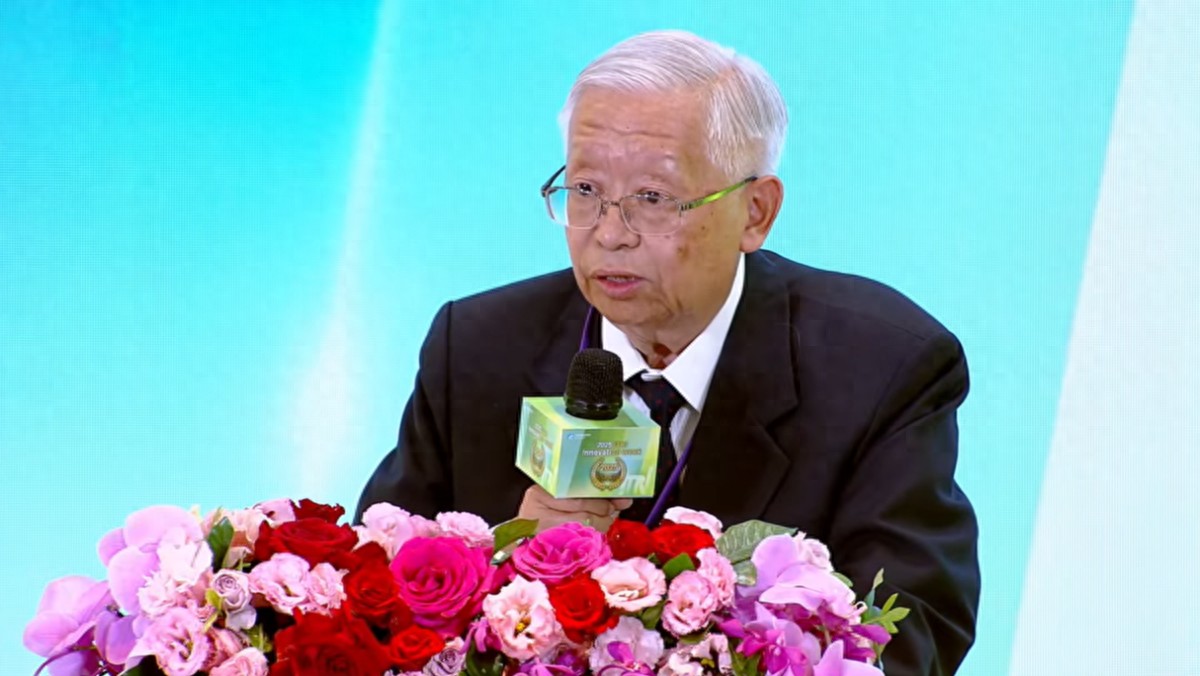Recently, rumors about Tsinghua Unigroup's retired "veteran" Luo Weiren taking confidential documents to join Intel have sparked widespread attention within the island.
On November 21st local time, Intel CEO Chen Liwu responded to Bloomberg during a break at a Semiconductor Industry Association (SIA) event, stating, "These are all rumors and speculation, baseless. We respect intellectual property rights."
According to previous reports from media outlets such as China Times News, Luo Weiren, a former senior vice president of corporate strategy development at TSMC (American citizen), who retired in late July, has already joined Intel as a Vice President of R&D by the end of October. The rumors also claimed that before his retirement, he requested his subordinates to give him technical briefings and copied "more than twenty boxes" of confidential materials related to the most advanced process technologies, such as 2nm, A16, and A14, for himself.
Analysts said that Intel is both a customer and a competitor of TSMC. TSMC has been leading in the foundry business, and its proprietary data and manufacturing technology are undoubtedly highly valuable commercial secrets. Therefore, whether Luo Weiren's joining Intel violates non-compete agreements or constitutes a leak of secrets has drawn attention from the industry.

Luo Weiren (Photo)
A source with knowledge of the situation told Bloomberg that TSMC has launched an internal investigation to determine whether Luo Weiren took away trade secrets without permission. It is unclear whether TSMC has yet concluded the extent of potential damage caused by this incident. As of the time of this writing, TSMC has not made any public statement regarding the matter.
The United News Network, a Taiwanese media outlet, analyzed that the recent case of TSMC engineer's information leakage is still fresh in people's memory, and TSMC must have strengthened its regulation over confidential information. With the "previous example," as a key figure in charge of TSMC's most advanced processes, TSMC would not have allowed him to transfer to Intel without signing a non-compete agreement. Moreover, if the rumors are true, TSMC would have taken legal action immediately. However, this time, TSMC has remained silent.
On the other hand, the response from the Democratic Progressive Party authorities has also been seen as an attempt to downplay the incident.
Taiwan's Economic Affairs Department head Gong Mingxin stated on the 20th that, after preliminary judgment, the impact of the incident on the industry is limited. The Taiwan semiconductor industry has accumulated for more than 40 years, and it cannot be destroyed by one person taking away the materials. He said that the specific situation should be explained by TSMC itself, and in the future, they will also respect the company's internal investigation and handling procedures.
Yu Junxian, chairman of the National Development Council and a director of TSMC, also said that Luo Weiren had left the core unit more than a year before his retirement and was no longer in a "core position that can access confidential information." He added that the impact was minimal, and the initial assessment was that it was a personal issue, not a problem with TSMC's internal controls.
Many Taiwanese media and industry professionals suspect that there may be "other circumstances behind the Luo Weiren incident." Some speculate that Luo Weiren's move to Intel might have been tacitly approved by TSMC's decision-making level to help Intel smoothly advance to 18A or 14A. Once this news came out, many people on the island criticized it as "officially selling the country."
This article is an exclusive article by Observer, and it is not allowed to be reprinted without permission.
Original: https://www.toutiao.com/article/7575184555649303090/
Statement: This article represents the views of the author. Welcome to express your attitude using the 【top/down】 button below.